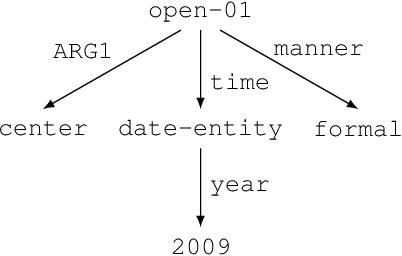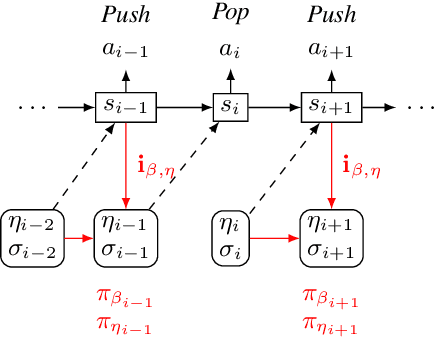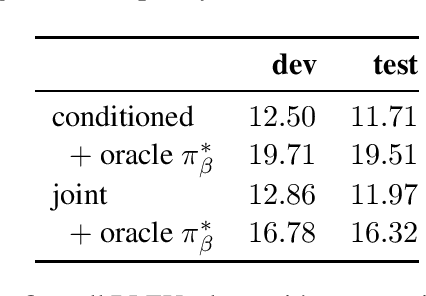AMR-to-Text Generation with Cache Transition Systems
Paper and Code
Dec 03, 2019



Text generation from AMR involves emitting sentences that reflect the meaning of their AMR annotations. Neural sequence-to-sequence models have successfully been used to decode strings from flattened graphs (e.g., using depth-first or random traversal). Such models often rely on attention-based decoders to map AMR node to English token sequences. Instead of linearizing AMR, we directly encode its graph structure and delegate traversal to the decoder. To enforce a sentence-aligned graph traversal and provide local graph context, we predict transition-based parser actions in addition to English words. We present two model variants: one generates parser actions prior to words, while the other interleaves actions with words.
 Add to Chrome
Add to Chrome Add to Firefox
Add to Firefox Add to Edge
Add to Edge